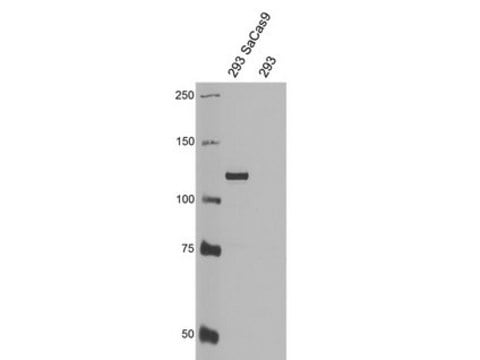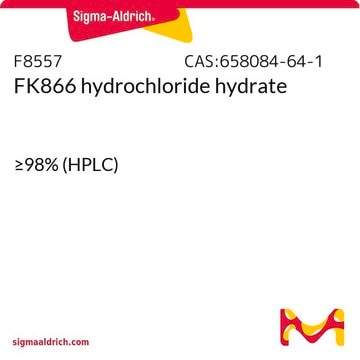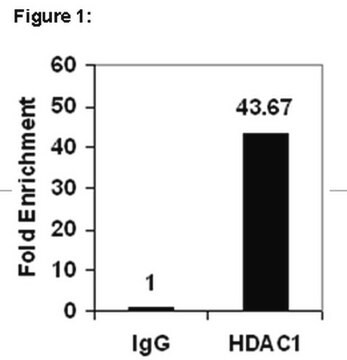AB356480
Anti-Cas9 (Rabbit Polyclonal)
serum, from rabbit
Sinónimos:
SaCas9, CRISPR-associated endonuclease Cas9
About This Item
Productos recomendados
biological source
rabbit
Quality Level
antibody form
serum
antibody product type
primary antibodies
clone
polyclonal
species reactivity
Staphylococcus aureus, bacteria
packaging
antibody small pack of 25 μL
technique(s)
immunofluorescence: suitable
western blot: suitable
isotype
IgG
UniProt accession no.
shipped in
ambient
target post-translational modification
unmodified
General description
Specificity
Application
Western Blotting Analysis: A 1:1,000 dilution from a representative lot detected Cas9 in HEK293 cells overexpressing fusion protein GFP-Cas9 (Courtesy of Dr. Gerry Shaw).
Quality
Western Blotting Analysis: 0.2 µg/mL of this antibody detected Cas9 (Rabbit Polyclonal) in 40 µg of HEK293 cells overexpressing fusion protein GFP-Cas9 from Staphylococcus aureus.
Target description
Other Notes
¿No encuentra el producto adecuado?
Pruebe nuestro Herramienta de selección de productos.
Storage Class
12 - Non Combustible Liquids
wgk_germany
WGK 1
flash_point_f
Not applicable
flash_point_c
Not applicable
Certificados de análisis (COA)
Busque Certificados de análisis (COA) introduciendo el número de lote del producto. Los números de lote se encuentran en la etiqueta del producto después de las palabras «Lot» o «Batch»
¿Ya tiene este producto?
Encuentre la documentación para los productos que ha comprado recientemente en la Biblioteca de documentos.
Nuestro equipo de científicos tiene experiencia en todas las áreas de investigación: Ciencias de la vida, Ciencia de los materiales, Síntesis química, Cromatografía, Analítica y muchas otras.
Póngase en contacto con el Servicio técnico



![[1,1′-Bis(diphenylphosphino)ferrocene]dichloropalladium(II)](/deepweb/assets/sigmaaldrich/product/structures/130/734/8846aa26-1858-458a-998d-8c306c13bf0f/640/8846aa26-1858-458a-998d-8c306c13bf0f.png)




